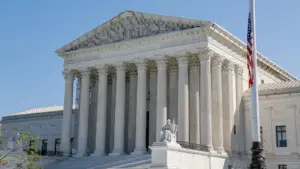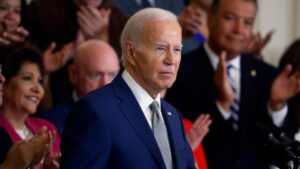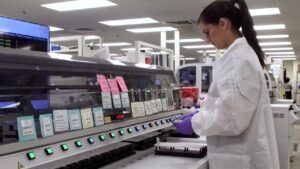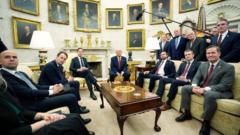The chemical sector is pushing back against pollution control measures aimed at safeguarding public health, seeking exemptions that could hinder environmental progress.
Chemical Industry Seeks Exemption from Pollutant Regulations Amid Controversy

Chemical Industry Seeks Exemption from Pollutant Regulations Amid Controversy
Groups argue new Biden administration rules impose excessive costs on major firms, calling for relief
The American Chemistry Council and the American Fuel & Petrochemical Manufacturers, representing key players in the chemical industry, have petitioned President Trump for exemptions from hazardous air pollution regulations put in place during the Biden administration. These regulations specifically target emissions of toxic substances like ethylene oxide, recognized for its cancer-causing potential and common in antifreeze and plastics.
In a letter dated March 31, these stakeholders expressed their concerns about the financial burden imposed by the newly adopted measures, which entail rigorous monitoring and emissions reductions. They contend that the compliance costs would sharply exceed $50 billion, contrasting with the Environmental Protection Agency (EPA)'s initial estimate of $1.8 billion.
The groups are requesting that President Trump utilize a provision in the Clean Air Act that allows for temporary waivers if the necessary technology for compliance is unavailable and if these exemptions serve national security interests. This appeal follows the EPA’s recent signal that companies could opt for waivers for clean air compliance by contacting the agency.
The chemical industry sees these new guidelines as not only onerous but also unmanageable within the set timelines. Their argument indicates a pushback against environmental regulations that aim to protect air quality and public health, signaling ongoing tensions between industrial interests and regulatory frameworks designed to mitigate pollution.
In a letter dated March 31, these stakeholders expressed their concerns about the financial burden imposed by the newly adopted measures, which entail rigorous monitoring and emissions reductions. They contend that the compliance costs would sharply exceed $50 billion, contrasting with the Environmental Protection Agency (EPA)'s initial estimate of $1.8 billion.
The groups are requesting that President Trump utilize a provision in the Clean Air Act that allows for temporary waivers if the necessary technology for compliance is unavailable and if these exemptions serve national security interests. This appeal follows the EPA’s recent signal that companies could opt for waivers for clean air compliance by contacting the agency.
The chemical industry sees these new guidelines as not only onerous but also unmanageable within the set timelines. Their argument indicates a pushback against environmental regulations that aim to protect air quality and public health, signaling ongoing tensions between industrial interests and regulatory frameworks designed to mitigate pollution.























